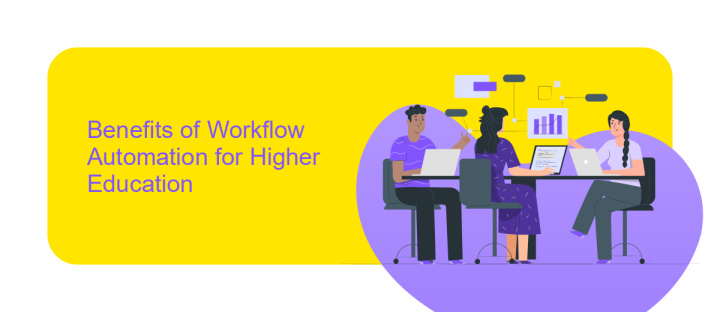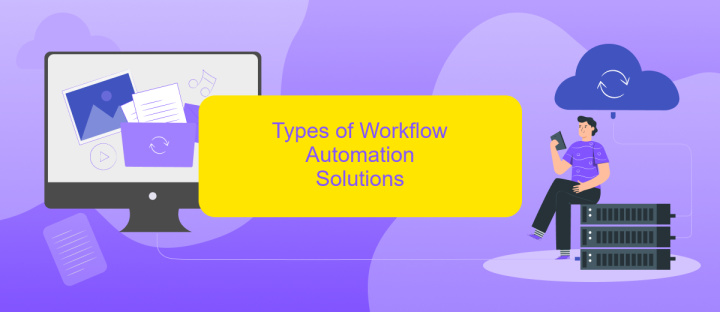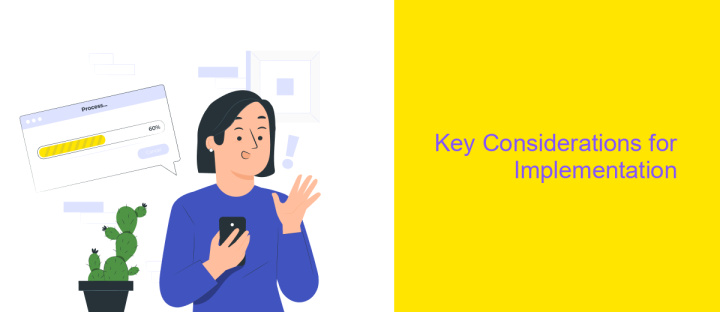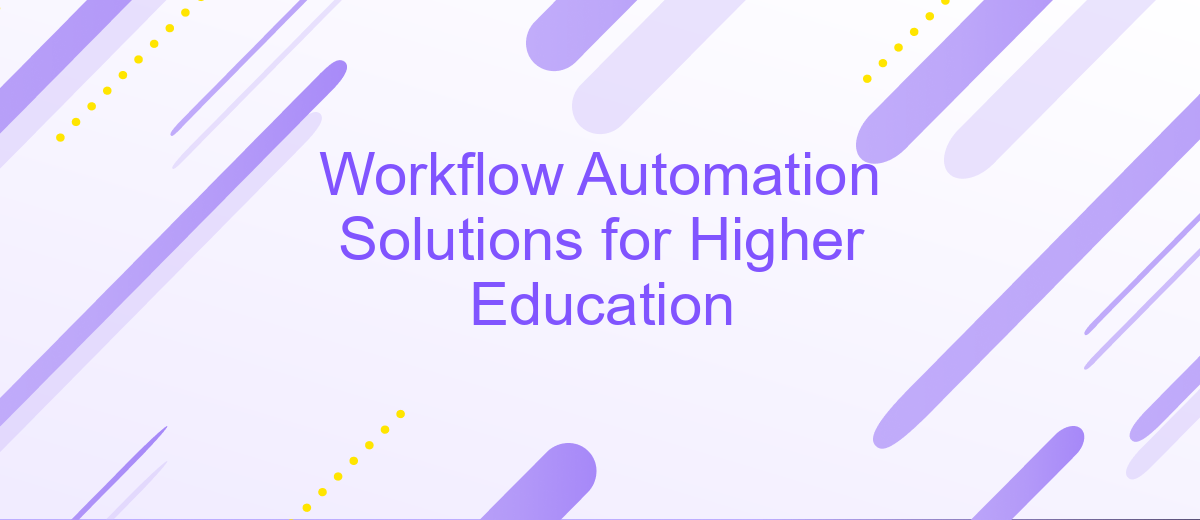Workflow Automation Solutions for Higher Education
In today's rapidly evolving educational landscape, higher education institutions face increasing pressure to streamline their operations and enhance efficiency. Workflow automation solutions offer a transformative approach to managing administrative tasks, improving productivity, and allowing educators to focus on what truly matters—student success. This article explores the benefits and key considerations of implementing workflow automation in higher education.
Introduction
In recent years, higher education institutions have increasingly turned to workflow automation solutions to streamline their administrative processes and enhance operational efficiency. These solutions not only reduce the burden on staff but also improve the overall experience for students and faculty members.
- Automated enrollment and registration processes
- Efficient management of student records and data
- Streamlined communication between departments
- Enhanced tracking and reporting capabilities
One notable tool that facilitates seamless integration of various systems within higher education is ApiX-Drive. This service enables institutions to connect different applications and automate data transfers without requiring extensive technical expertise. By leveraging such tools, higher education institutions can focus more on their core mission of delivering quality education while minimizing administrative overhead.
Benefits of Workflow Automation for Higher Education

Workflow automation in higher education significantly enhances operational efficiency by streamlining repetitive tasks, allowing faculty and administrative staff to focus on more strategic activities. Automated workflows reduce the time spent on manual data entry, approvals, and communication processes, leading to quicker response times and improved accuracy. This not only enhances productivity but also improves the overall experience for students and staff.
Additionally, integrating various systems and tools through platforms like ApiX-Drive can further optimize the workflow. ApiX-Drive allows seamless data synchronization across multiple applications, making it easier to manage student information, course registrations, and other administrative tasks. By leveraging such integration services, educational institutions can ensure that their systems work in harmony, reducing the likelihood of errors and ensuring a more cohesive operational environment. This holistic approach to workflow automation ultimately supports a more efficient and effective educational ecosystem.
Types of Workflow Automation Solutions

Workflow automation solutions for higher education institutions streamline administrative tasks, enhance communication, and improve overall efficiency. These solutions can be categorized into several types, each serving a specific purpose to optimize various processes.
- Document Management Systems: These systems automate the handling, storage, and retrieval of documents, ensuring that important files are easily accessible and secure.
- Student Information Systems (SIS): SIS platforms manage student data, including enrollment, grades, and attendance, automating many administrative tasks and improving data accuracy.
- Learning Management Systems (LMS): LMS solutions facilitate online learning by automating course delivery, assignments, and grading, providing a seamless educational experience.
- Integration Platforms: Tools like ApiX-Drive enable seamless integration between various software applications, allowing for the automated transfer of data and reducing manual entry errors.
- Communication Tools: Automated communication platforms streamline interactions between students, faculty, and staff, ensuring timely and effective information dissemination.
Implementing these workflow automation solutions can significantly reduce the administrative burden on higher education institutions, allowing staff to focus more on strategic initiatives and enhancing the overall educational experience for students.
Key Considerations for Implementation

Implementing workflow automation solutions in higher education requires careful planning and consideration of several key factors. Institutions must first assess their current processes to identify areas where automation can provide the most significant benefits. This involves understanding the specific needs of different departments and how automation can streamline their operations.
Another critical consideration is the selection of appropriate tools and platforms that align with the institution's goals. It's essential to choose solutions that are user-friendly, scalable, and compatible with existing systems. For example, ApiX-Drive can facilitate seamless integrations between various software applications, ensuring a smooth transition to automated workflows.
- Evaluate current processes and identify automation opportunities
- Select user-friendly and scalable automation tools
- Ensure compatibility with existing systems
- Consider data security and compliance requirements
Lastly, institutions should provide adequate training and support for staff to ensure they can effectively use the new automation tools. Continuous monitoring and evaluation of the automated processes will help in making necessary adjustments and improvements, ensuring long-term success and efficiency.
- Automate the work of an online store or landing
- Empower through integration
- Don't spend money on programmers and integrators
- Save time by automating routine tasks
Case Studies and Success Stories
One notable case study involves a prestigious university that implemented workflow automation to streamline their administrative processes. By integrating various systems using ApiX-Drive, they were able to automate student enrollment, course registration, and faculty scheduling. This not only reduced manual errors but also significantly cut down processing time. As a result, the university reported a 30% increase in operational efficiency within the first six months of implementation.
Another success story comes from a community college that faced challenges in managing student data and communications. By adopting a comprehensive workflow automation solution, they utilized ApiX-Drive to connect their CRM, email marketing, and student information systems. This seamless integration allowed for real-time updates and personalized communication with students. The college saw a 25% improvement in student engagement and a 20% increase in retention rates, showcasing the transformative power of workflow automation in higher education.
FAQ
What is workflow automation in higher education?
How can workflow automation benefit higher education institutions?
What types of processes can be automated in higher education?
How difficult is it to implement workflow automation in a higher education setting?
What tools are available for integrating and automating workflows in higher education?
Apix-Drive is a universal tool that will quickly streamline any workflow, freeing you from routine and possible financial losses. Try ApiX-Drive in action and see how useful it is for you personally. In the meantime, when you are setting up connections between systems, think about where you are investing your free time, because now you will have much more of it.


